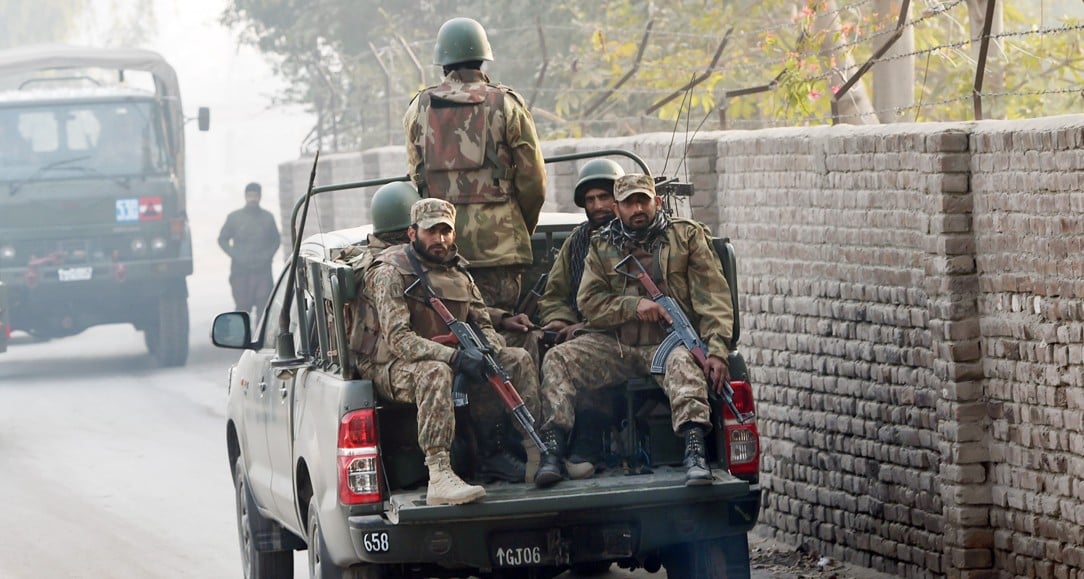
Despite countless police and army checkpoints on all entrances and exits to Peshawar, six terrorists wearing suicide vests were able to enter the school undetected

The Army Public School and College, Peshawar will never be the same again after what it witnessed on December 16, incidentally the anniversary of the day Pakistan was dismembered 43 years ago.
The school’s badly-damaged building, burnt rooms, and bullet-riddled walls will soon get repaired and whitewashed, but nobody would be able to wash away the harsh memories of the killing of 132 innocent students and nine staff members from its haunted premises.
Despite countless police and army checkpoints on all entrances and exits to Peshawar, six terrorists wearing suicide vests were able to drive a white Suzuki van full of automatic weapons, improvised explosive devices, hand-grenades and large quantity of ammunition close to the western boundary wall of the school undetected.
It wasn’t difficult from there onward to wreck havoc on defenseless children dressed in the dark-grey trousers, white shirts, and green neckties with yellow stripes under the green sweaters that make up the winter uniform of the army-run school. None of those angels or the mothers who dressed them earlier that morning knew some hyenas would add the red colour of blood through bullets and put them to eternal sleep.
The grieved father of one martyred student from the fateful ninth grade that saw all, except one absent student, perish in the deadly attack argued whether the security personell involved in the clearing up operation were up to the mark. "Six men killed more than 140 innocent people and it took our security forces eight hours to take control of the premises. Would you still call it a kamyaab operation?" he asked angrily.
It is understandable that the armed attackers were better placed during the battle inside the school as many students and staff were in a hostage-like situation. On the other hand, the Special Services Group (SSG) commandoes of the Pakistan Army had a difficult task as their priority was to engage and eliminate the terrorists with a minimum cost of civilian lives.
Shamim Shahid, senior journalist in Peshawar, believes it is a failure at the forces’ end. "The security forces are far more resourceful than any terrorist outfit in this region. Even then they were defeated today by a bunch of terrorists. First, they failed to stop the attackers entering Peshawar. Then they failed to minimise the casualties at the school," he argues.
He also expresses concern about the quality and effectiveness of the counter- terrorism training in handling such hostile situations. "We are told the security forces arrived at the site within 15 minutes of the start of the attack. Still, so many children were killed as it took the specialised commandos hours to shoot six gunmen," he adds.
Like others, the civil society members are also deeply hurt. Some are asking questions about the preparedness of law-enforcing agencies and security forces in countering indiscriminate attacks by terrorists against the civilians.
Zar Ali Khan Afridi, coordinator of the Child Rights Movement, a non-governmental organisation working for children rights in the Federally Administered Tribal Areas (Fata), says the attack was inevitable in the wake of the on-going military operations in the tribal areas. "Such an attack was expected as the security forces were targeting the Tehrik-e-Taliban Pakistan in their strongholds. It is the forces job to prevent such attacks," he says.
Afridi points out that the forces have spent billions of rupees and sacrificed hundreds of soldiers fighting terrorism for the past 12 years for killing many terrorists. "Still, the militants are able to strike at will. Each man and woman is searched upon entering Peshawar from the tribal areas. I am unable to cross a checkpoint without displaying my national identity card. It is strange how the school attackers infiltrated the heavily-guarded Cantonment area with a vehicle laden with heavy weaponry," he adds.
Journalist Shamim Shahid argues that the first step in change of policy should be bringing religious seminaries under a centralised system to ensure check on their ‘extra-curricular’ activities. "There is no check on who stays at the seminaries and the tableeghi centres and what they do. Anyone can go and stay there for a period of time without any problem and even use the premises for planning terrorist attacks," he claim.